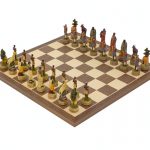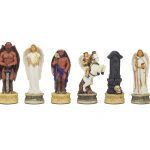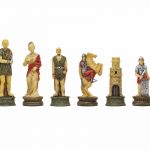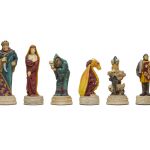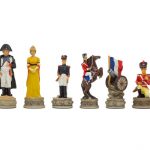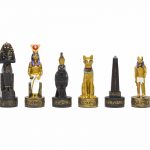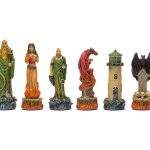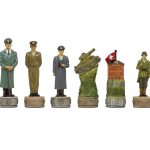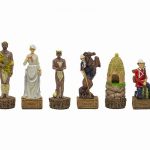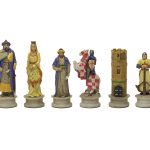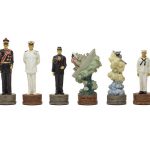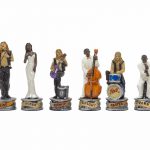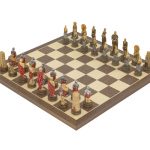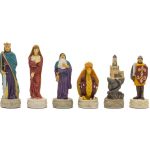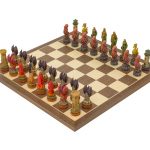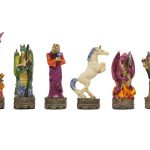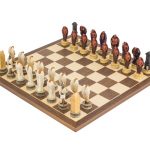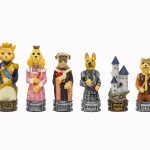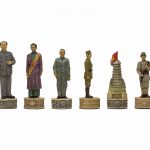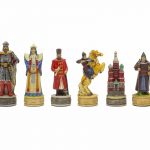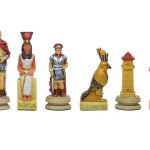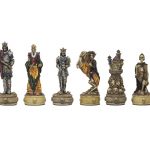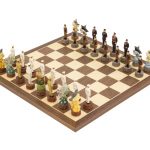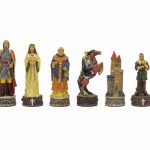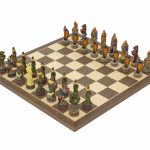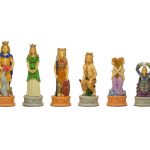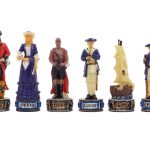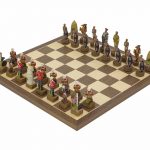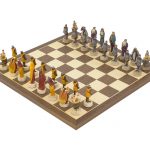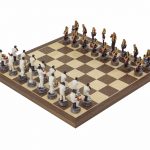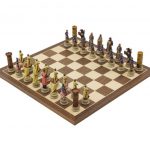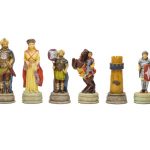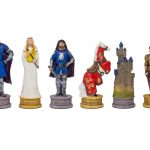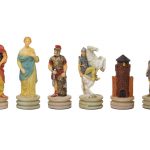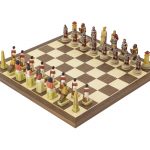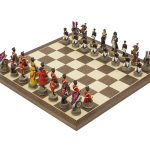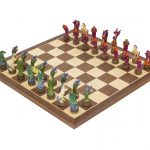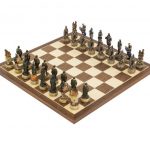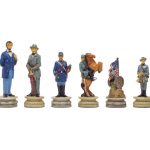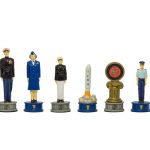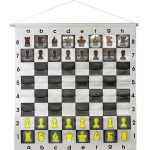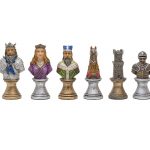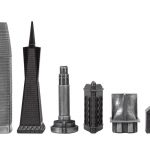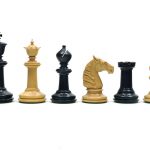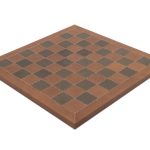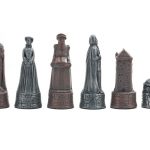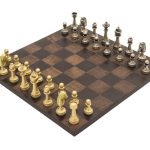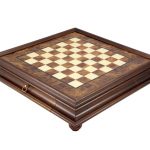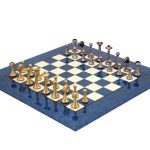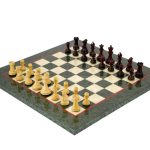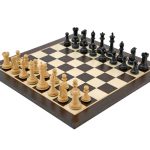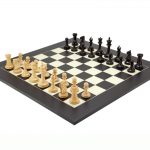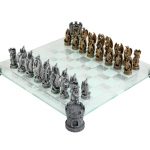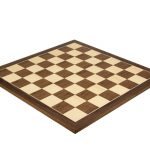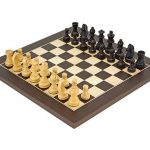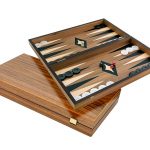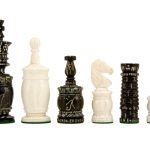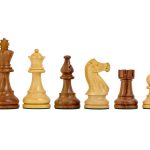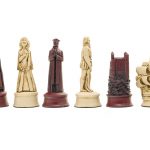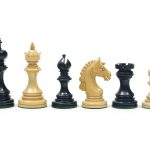Disclosure : This site contains affiliate links to products. We may receive a commission for purchases made through these links.
The Masai hand painted themed chess pieces by Italfama
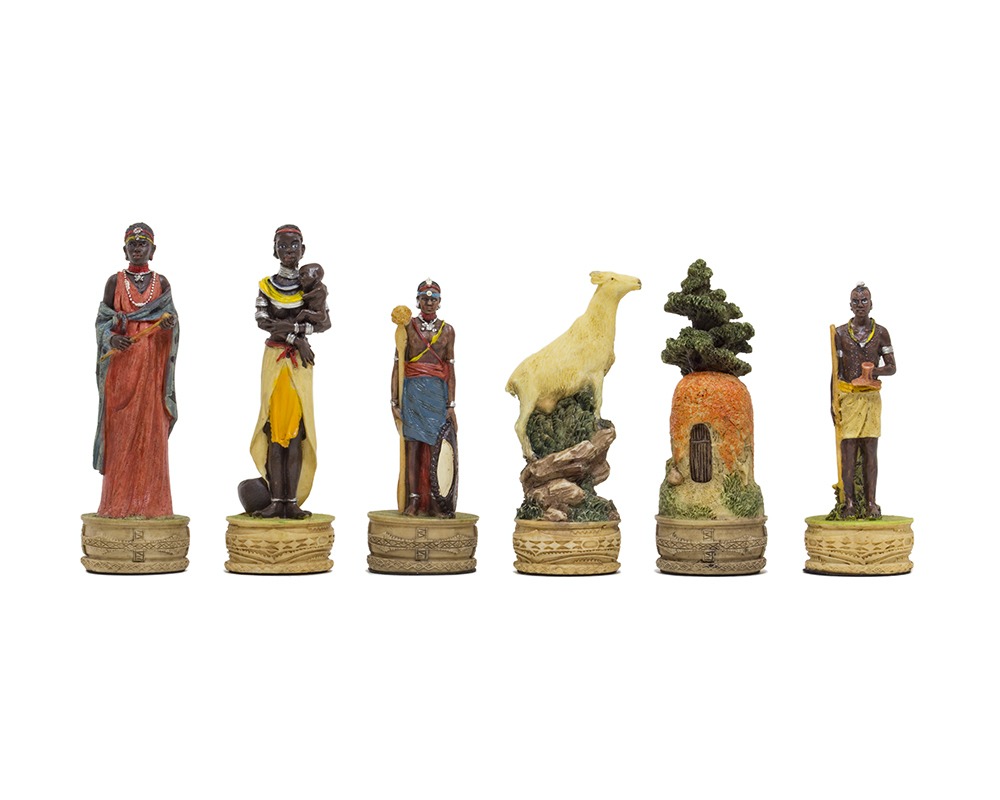
Beautifully crafted in Italy Exquisitely ornate 3 inch king Felted bases Ideal for a 16 inch board THE PIECES Two Masai tribes are portrayed in this beautiful set and like the people, the chessmen are beautifully ornate. The kings are adorned in tribal robes and jewellery whilst their queens are equally adorned in jewellery, carry babies. Children are a sign of wealth within the Masai culture. The bishops are very austere looking tribal elders whilst the knights are symbolised by cattle, another measure of a Masai’s wealth. The rooks are depicted by the Masai shelters under the protection of a tree. The pawns are the young Masai warriors who have endured painful traditions and customs to achieve the honour of bearing the staff and shield to defend their tribe. We have matched these elaborate pieces with a stunning 16 inch walnut and maple board from Spain to give you the The Masai Handpainted Themed Chess Set. With or without the board, this makes a stunning and unique chess set. THE HISTORY The Masai (or Maasai) are a Nilotic people (indigenous to the Nile) and inhabit southern Kenya and northern Tanzania. Their distinctive dress and customs, together with their residence near the many game parks, makes them among the best known local populations. They speak the Maa language but are also educated in the official languages of Kenya and Tanzania, Swahili and English. It is reported that the Masai population numbered 841,622 in Kenya in the 2009 census compared to 377,089 in the 1989 census. Whilst the Tanzanian and Kenyan governments have instigated programs to encourage the Masai to abandon their traditional semi-nomadic lifestyle, the people have continued their traditions and customs. Because of their ability to farm in deserts and scrublands, Oxfam has claimed that the lifestyle of the Masai should, in fact, be embraced as a response to climate change. Many Masai tribes, throughout Tanzania and Kenya, welcome visits to their village to experience their culture, traditions, and lifestyle. The Masai society is strongly patriarchal in nature, it is the elder men, and sometimes retired elders, who decide most major matters for each Masai group. A full body of oral law covers many aspects. Formal execution is unknown instead payment in cattle will settle matters. Life for the traditional Masai centres around their cattle which constitute their primary source of food. Cattle, together with children, also signifies a man’s wealth. A herd of 50 cattle, for example, is respectable, and the more children the better. However a man who has plenty of one but not the other is still considered to be poor. All of the Masai’s food needs are met by their cattle. They eat the meat, drink the milk and on occasion, drink the blood. Other livestock such as bulls, oxen and lambs are slaughtered for meat on special occasions and for ceremonies. Although the Masai’s entire way of life has historically depended on their cattle, due to their herds dwindling, they have grown dependent on food such as rice, cabbage, sorghum and potatoes.








